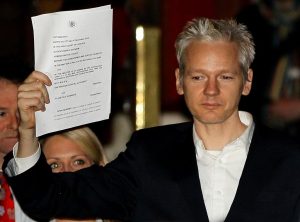
Summary of Legal Proceedings Leading to Release
Julian Assange’s prolonged legal battle, which captured the attention of the global community, has finally concluded. The court’s decision to release Assange from custody is the culmination of numerous hearings, appeals, and international interventions that have spanned several years. Each legal development in Assange’s case was closely monitored and heavily scrutinized, reflecting the case’s significance in discussions on press freedom and legal justice. This decision not only signifies the end of a contentious legal saga but also sets a precedent for how similar cases might be treated in the future.
World Leaders’ Statements on the Matter

The release of Julian Assange has elicited a variety of responses from world leaders, some of whom have openly celebrated his liberation. This diverse array of reactions underscores the complex and often divisive nature of Assange’s case and the broader issues it represents. The international discourse has been notably intensified, reflecting differing views on the balance between national security and freedom of the press. These statements from global leaders not only highlight differing national perspectives but also influence the international policy landscape regarding information dissemination and transparency.
Public Demonstrations and Support Events
In response to Julian Assange’s release, supporters around the world have organized rallies and events celebrating his freedom and highlighting the importance of press freedom. These gatherings serve not only as expressions of solidarity for Assange but also as platforms for advocating broader reforms in information freedom and transparency. The scale and spread of these events underscore the global resonance of Assange’s case and the principles it represents, rallying individuals and groups who call for greater protection for whistleblowers and journalists worldwide.
Analysis of Legal Arguments Used for Release
The legal arguments that led to Assange’s release have had a profound impact on the interpretation and application of laws related to freedom of speech and whistleblower protections. The court’s decision was influenced by considerations of human rights, journalistic freedom, and the public interest value of the disclosed information. This analysis evaluates how legal precedents, national laws, and international treaties were applied, offering insights into the judiciary’s balancing act between enforcing the law and upholding democratic ideals.
Potential Political Repercussions

Assange’s release is likely to catalyze shifts in international relations and public opinion regarding government transparency and accountability. This development could alter diplomatic dynamics, as governments may reassess their information security and public disclosure policies. Moreover, the public’s perception of transparency initiatives and government openness could see significant changes, potentially leading to increased demands for reforms and greater scrutiny of government actions both domestically and internationally.
Assange’s Expected Contributions to Activism
With his release, Julian Assange is expected to play a renewed role in promoting transparency and enhancing the activism landscape. His firsthand experiences and the symbolic power of his case are likely to invigorate global networks of activists and advocates pushing for greater governmental and corporate accountability. Assange’s ongoing involvement in these movements could lead to more organized and effective campaigns for freedom of information and civil liberties worldwide.
Reform Proposals for Extradition Laws
The Assange case has prompted calls for a comprehensive review of extradition laws, particularly concerning political offense exceptions and the protection of freedom of expression. Legal scholars and policymakers are assessing how Assange’s case might influence international norms and extradition treaties, potentially leading to reforms that better protect individuals involved in the publication of sensitive or controversial information. This reevaluation is crucial in ensuring that extradition practices uphold human rights and reflect contemporary values on transparency and accountability.
Ongoing Legal Challenges and Appeals
Despite his release, Julian Assange continues to face ongoing legal appeals and challenges. These proceedings reflect the complex and often contentious nature of cases involving national security and freedom of information. Assange’s situation remains a focal point in global legal debates, highlighting the intricate interplay between individual rights and state security. As these legal battles evolve, they will likely continue to influence legal standards and practices concerning the disclosure and dissemination of classified information.
In summary, the release of Julian Assange from custody is a multifaceted event with widespread implications for legal standards, international relations, and activism. As the world reflects on and reacts to this development, the conversations and changes it triggers will undoubtedly shape the landscape of freedom of information and transparency for years to come.









